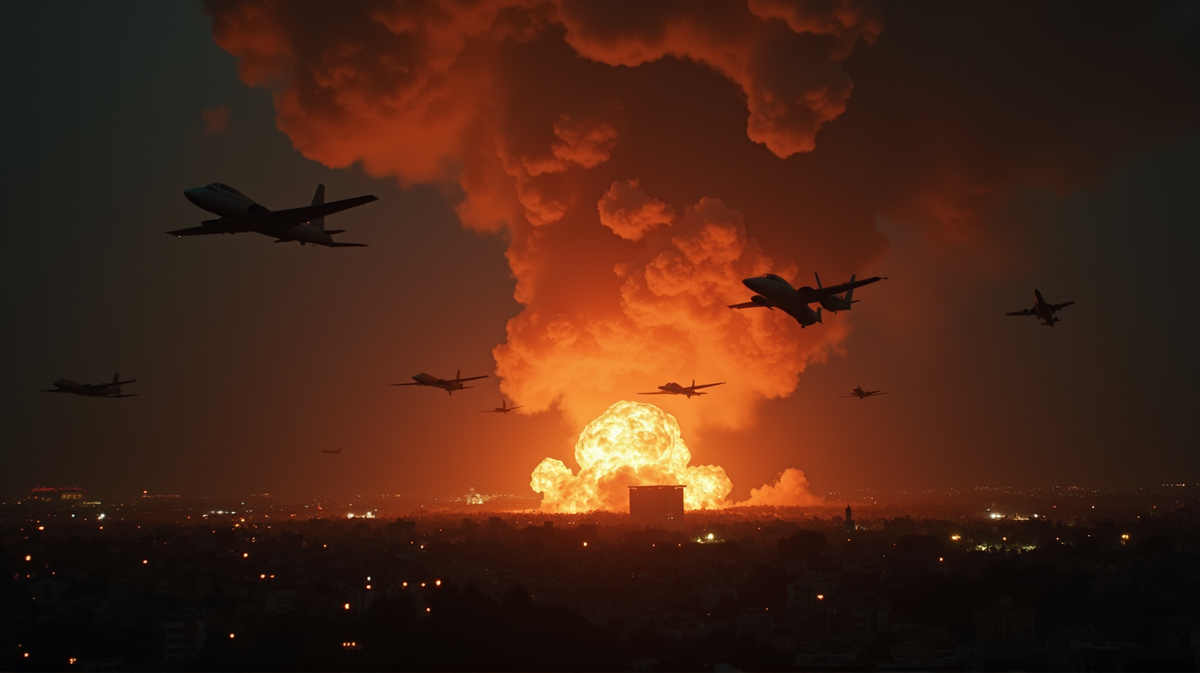Trump's Lightning Strike on Iran: A Diplomatic Gamble
Breaking his two-week promise, Trump strikes Iran's nuke sites, igniting fears of escalation. Can diplomacy still prevail?

The Sudden Shift in Tactics
In a dramatic turn of events, President Donald Trump, who had promised a two-week deliberation period, launched a military strike on Iran’s nuclear sites merely two days later. The operation, which hit key locations at Fordow, Natanz, and Isfahan, was described by Trump as a “spectacular success”. Yet, the hasty nature of this decision has brought the United States into direct involvement in Israel’s conflict with Iran, stirring fears of a broader regional war.
Historical Patterns and Strategy
President Trump’s unexpected decision deviates from his repeated use of the “two-week” promise—a familiar timeline he has often employed during his presidency. Previously suggested as a form of negotiation or delay, this pattern has spanned topics from tax reform to foreign policy. Could this swift action indicate a strategic shift, or was it merely a smokescreen?
From Peacemaker to Participant
Once championing a non-interventionist stance, Trump campaigned on promises to pull America out of overseas conflicts. However, his decisive order to strike Iranian nuclear sites marks a departure from his earlier rhetoric. Flanked by key administration figures, Trump’s stern warning to Iran underscores a new phase in U.S. military engagement under his leadership.
MAGA Rift and International Reactions
The decision to engage militarily with Iran has been met with internal dissent within Trump’s “America First” movement. Prominent figures such as Steve Bannon and Tucker Carlson have openly criticized the lack of credible intelligence and the potential departure from Trump’s non-interventionist roots. Conversely, Israeli officials have praised the move, solidifying tensions and alliances in the region.
International Fallout and Future Risks
In response to U.S. actions, Iran has issued retaliatory missile strikes on Israeli targets, signaling the potential for an enduring conflict. International bodies, including the United Nations, express alarm over the escalating situation, warning of dire consequences. As the world watches, Trump’s immediate challenge is to mitigate escalating tensions while maintaining global diplomatic channels.
What Lies Ahead?
As Trump returns to Washington amidst a backdrop of international condemnation and domestic division, the administration faces a challenging landscape. The strike on Iran has put American lives at risk and tested alliances, calling into question the sustainability of the current diplomatic strategy. The U.S. must now navigate these turbulent waters to prevent further escalation and restore peace.
According to Times of India, the geopolitical repercussions of this conflict may shape the future of international relations. As tensions rise, the balance between military might and diplomatic resolve becomes ever more critical.





